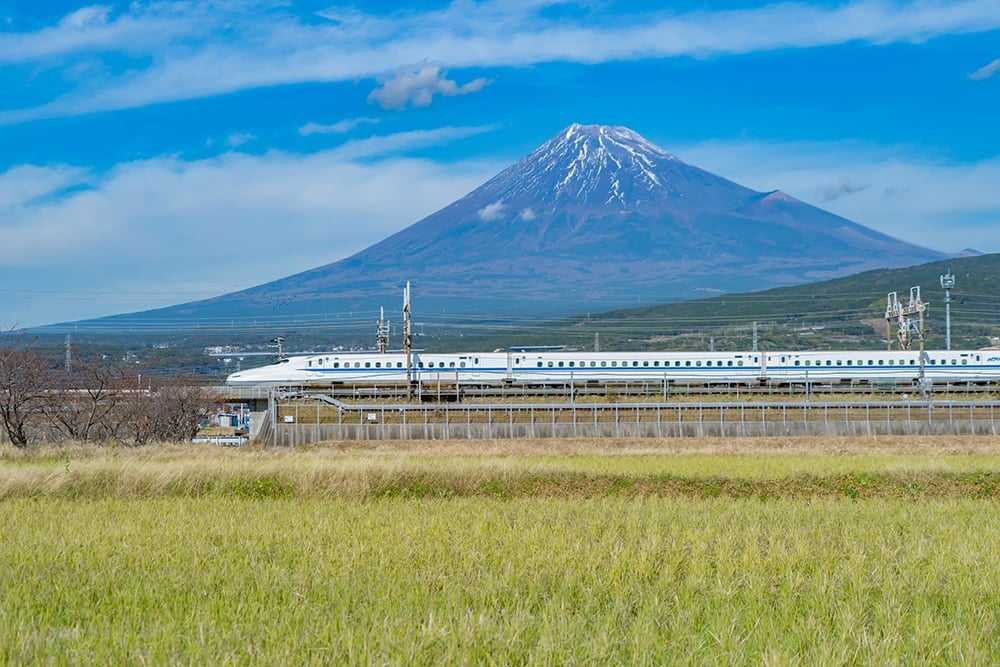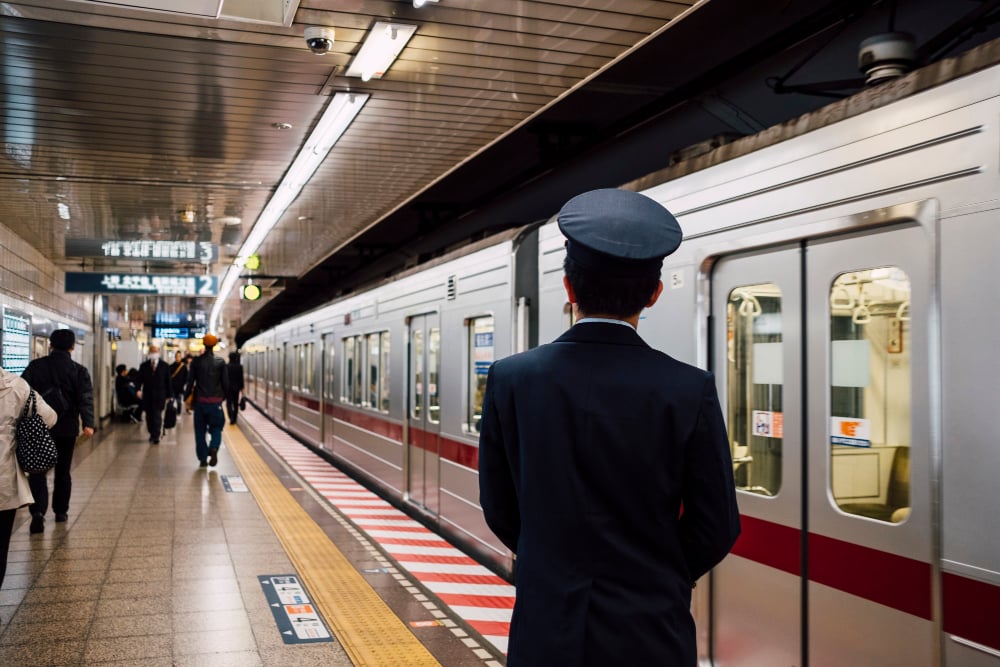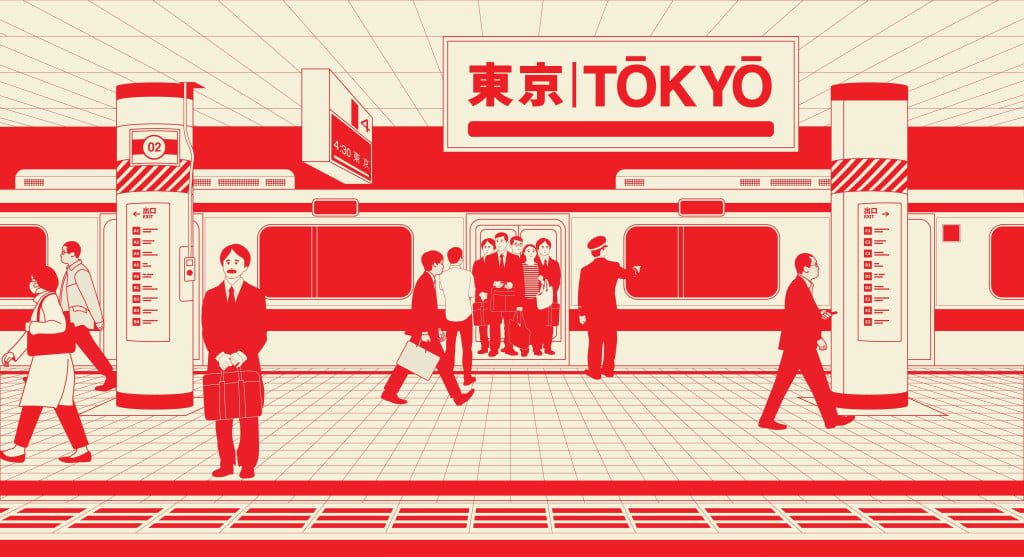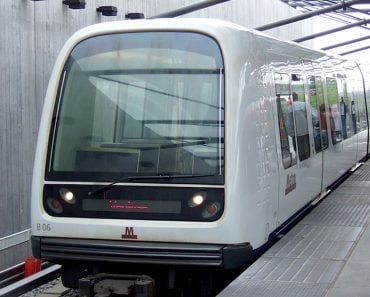Japanese trains’ punctuality arises from a cultural emphasis on time, advanced technology, rigorous training, and meticulous planning.
Japan is renowned for its efficient and punctual railway system. Japanese trains, including the famous Shinkansen, are remarkably reliable, with average delays measured in seconds. This precision results from a combination of advanced technology, meticulous planning, and a deep-rooted cultural emphasis on punctuality and respect for others.
In this article, we will explore the factors that contribute to the perennially on-time performance of Japanese trains, including the historical development of their rail systems, advanced technologies used by the industry, cultural influences, and the rigorous training of railway personnel.

Recommended Video for you:
Historical Development Of Japanese Railways
The foundation of Japan’s punctual railway system can be traced back to the late 19th century, when Japan began modernizing under the Meiji Restoration. During this period, Japan adopted Western concepts of timekeeping and punctuality, shifting away from traditional time measurement methods based on incense clocks and irregular divisions of the day and night. The introduction of mechanical watches and the standardization of time measurement played a crucial role in instilling punctuality and structure in Japanese society.
The construction of Japanese railways began during the late 19th century and has since evolved into a highly organized and efficient network. Railways in Japan have a history going back 140 years, during which an impressive amount of know-how and experience has been accumulated to ensure seamless operations. This historical development provided a strong foundation for the country’s unparalleled railway systems.

Advanced Technologies And Systems
Japanese railways have continuously embraced new technologies to improve their punctuality and efficiency. In 1972, the Japanese National Railway implemented programmed route control to synchronize rail schedules, marking a significant milestone in the pursuit of punctuality.
Over the years, more cutting-edge technologies have been adopted, such as the Autonomous Decentralized Transport Operation Control System (ATOS) and the Computerized Safety, Maintenance, and Operation Systems of Shinkansen (COSMOS).
ATOS and COSMOS are sophisticated systems that play a critical role in ensuring the on-time arrival of a vast number of trains in Japan. ATOS allows for the precise control of train operations, leading to optimized schedules and minimal delays. COSMOS focuses on safety, maintenance and operation, ensuring that the Shinkansen maintains its now-legendary reputation for punctuality. These advanced systems rely on a combination of automation and human oversight, emphasizing the importance of both technology and personnel in maintaining punctuality and safety.
Cultural Influences On Punctuality
Japanese culture places a strong emphasis on punctuality, and this cultural trait extends to all aspects of life, including the railway system. Japan has historically been a meritocratic society with a collective focus, where individuals are expected to contribute to the well-being of the broader group. This collective mentality encourages people to work together to accomplish tasks on time.

Japanese culture’s emphasis on “uncertainty avoidance” also plays a role in punctuality. The need to control the future and avoid uncertainty has led to the development of meticulous planning and scheduling in various aspects of Japanese life, including transportation. Japanese citizens are respectful of collective rules and have a deep sense of duty to maintain schedules and minimize disruptions.
Order and discipline are integral to Japanese culture, given the country’s high population density and susceptibility to seismic activity. This culture of order and discipline extends to the work of railway workers, who prioritize a job well done and avoid using the railway system as a platform for social or political agendas, becoming a part of the narrative that shapes Japanese identity.
Rigorous Training And Safety Measures
The punctuality of Japanese trains also results from rigorous training and safety measures for railway personnel. Train conductors, drivers, and station staff are essential for the safe and efficient operation of railways. They undergo extensive training to ensure that they can meet the demanding standards of punctuality and safety.
One unique practice employed by Japanese railway workers is “pointing and calling”, also known as shisa kanko. This industrial safety method involves associating physical movements and vocal calls with specific tasks to prevent errors. Studies have shown that pointing and calling can reduce workplace errors by up to 85 percent, demonstrating the commitment to precision and safety across all Japanese rail operations.

Conclusion
The punctuality of Japanese trains is the result of a multifaceted approach that combines historical development, advanced technologies, cultural influences, and rigorous training. Japan’s railway system has evolved over the years to become one of the most efficient and punctual train systems in the world.
The deep-rooted cultural emphasis on punctuality, combined with cutting-edge technology and meticulous planning, ensures that Japanese trains consistently arrive on time, even in the face of challenges like natural disasters.
As a testament to their commitment to punctuality, Japanese trains, including the iconic Shinkansen, maintain average delays of mere seconds, setting a high standard for efficiency and reliability that is admired worldwide. In a world where time is of the essence, Japan’s railway system serves as a much-needed example of how a combination of culture, technology, and dedication can achieve unparalleled reliability.
References (click to expand)
- Why is Japan so obsessed with punctuality?.
- Japanese punctuality began in modern times — en.
- Performance, local rail service and debts: Transport Reviews.
- Hashimoto, T. (2008, March 1). Japanese Clocks and the History of Punctuality in Modern Japan. East Asian Science, Technology and Society: An International Journal. Informa UK Limited.
- Ning B., Brebbia C. A.,& Tomii N. (2010). Computers in Railways 12. WIT Press
- lucris - Lunds universitet.
- Tamaki, T. (2023, May 29). Railways as Japanese identity: Riding between confidence and inexperience. Contemporary Japan. Informa UK Limited.













